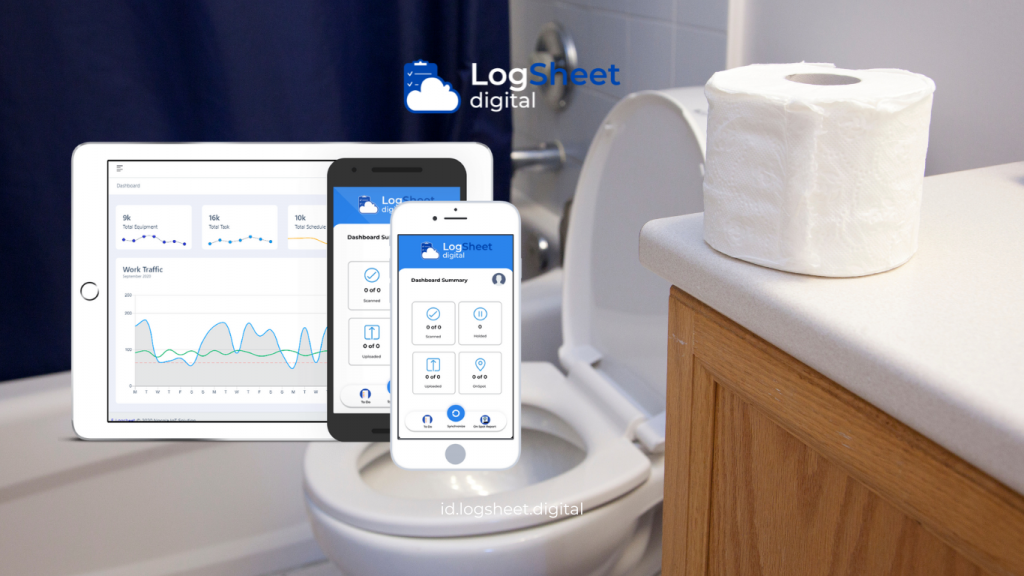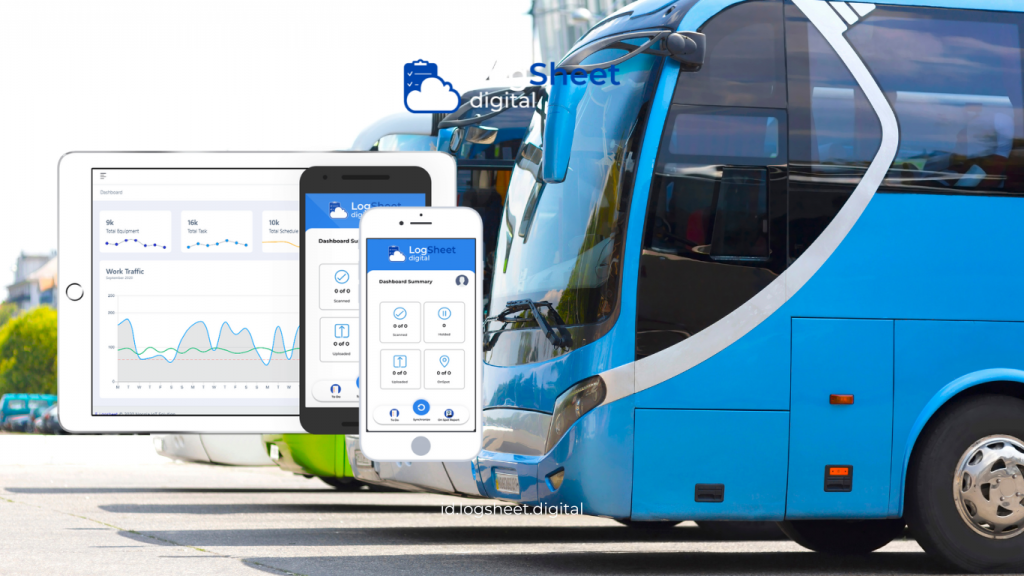In the era of digital transformation, asset management and reporting have undergone significant changes. Manual methods, which are time-consuming and prone to errors, are being replaced by digital logsheets technology. This article will discuss how the implementation of digital logsheet can improve efficiency and accuracy in asset condition reporting, as well as provide practical guidance for its implementation.
What is a Digital Logsheet?

Read More: Data Security in Digital Logsheets: Challenges and Security Strategies
Definition of Digital Logsheet
A digital logsheet is a technology-based platform used to record, store, and monitor data related to asset conditions electronically. Unlike manual methods, digital logsheets enable real-time and centralized data collection.
Main Functions of Digital Logsheets
- Automatic Recording: Eliminates the need for manual input.
- Real-Time Reporting: Provides instant asset condition updates.
- Data Analysis: Facilitates performance and asset condition evaluations.
Benefits of Digital Logsheets
- Reduces Human Errors: Automation of data reduces the risk of manual entry errors.
- Time Efficiency: The reporting process becomes faster and easier.
- Better Decision Making: Real-time data allows for in-depth analysis.
Why are Digital Logsheets Important in Asset Reporting?

Read More: Implementing Digital Logsheets for Safety Equipment Monitoring
Process Efficiency
Digital logsheets automate many administrative tasks, reducing the time required for reporting.
Data Accuracy
With automatic recording, the risk of human errors in data entry is minimized.
Continuous Monitoring
Real-time monitoring allows early detection of potential issues with assets.
Data Security and Storage
Digital logsheets come equipped with encryption features and data backup, ensuring the information remains secure.
Key Features of Digital Logsheets for Asset Reporting

Read More: Advantages of Digital Logsheets in Safety Equipment Maintenance Management
Integration with IoT Sensors
Digital logsheets can often be connected to Internet of Things (IoT) sensors to automatically collect data from assets.
Notifications and Alarms
This feature provides early warnings if anomalies are detected in assets, allowing for immediate action.
Automatic Reporting
The system can generate reports on a regular basis or upon request in an easy-to-read format.
Multi-Platform Access
Users can access the logsheet from any device, such as computers, tablets, or smartphones.
Steps for Implementing Digital Logsheets

Read More: Digital Logsheets Innovations in Daily Monitoring and Quality Improvement
1. Analyze Needs
Identify the types of assets and what data needs to be monitored and reported.
2. Choose the Right Platform
Select a digital logsheet platform that meets your operational needs and budget.
3. Train the Team
Ensure that the entire team understands how to use the digital logsheet and its benefits.
4. System Integration
In addition, ensure that the logsheet can be integrated with existing hardware or systems. This ensures seamless operation and maximizes the effectiveness of both the logsheet and the current infrastructure.
5. Monitoring and Evaluation
Therefore, conduct regular monitoring to ensure the digital logsheet is running optimally. This helps identify and address any issues promptly, maintaining system efficiency.
Case Studies: Successful Implementation of Digital Logsheets

Read More: Overcoming Digital Logsheet Challenges in Calibration
Manufacturing Industry
A manufacturing plant adopted a digital logsheet to monitor machine conditions. As a result, machine downtime was reduced by 25% due to real-time monitoring and reporting.
Energy Companies
Energy companies use digital logsheets to monitor equipment in remote locations. As a result, reporting efficiency increased by 30%, which in turn allowed for the quick detection of potential damage.
Transportation Sector
In the transportation sector, digital logsheets are used to track the condition of vehicle fleets. Consequently, this helps with better maintenance planning and, as a result, reduces operational costs.
Challenges in Implementing Digital Logsheets

Read More: Implementing Digital Logsheets in Asset Risk Management
High Initial Costs
In addition, implementing digital logsheets requires an initial investment for equipment and training. As a result, organizations must carefully consider their budget and long-term benefits before making the transition.
Resistance to Change
Furthermore, some employees may be reluctant to switch from manual methods to new technology. Consequently, this resistance can slow down the adoption process and may require additional training and support to overcome.
Technology Infrastructure
However, limited internet access can be a significant barrier to the optimal use of digital logsheets. As a result, this may hinder real-time data collection and reporting capabilities, affecting the overall efficiency of the system.
Data Security
While the system is equipped with encryption, the risk of cyber-attacks still exists. Therefore, additional security measures are necessary.
The Future of Digital Logsheets in Asset Reporting

Read More: Digital Logsheets: Improving Vehicle and Equipment Maintenance Efficiency in Workshops
Technology Trends
- Predictive Analytics: Using historical data to predict future asset conditions.
- Blockchain: To improve data security and transparency.
- Artificial Intelligence (AI): For automatic analysis and action recommendations.
Development Potential
Digital logsheets are expected to continue evolving with more advanced features, such as integration with augmented reality (AR) for asset inspections.
Ongoing Implementation
Ongoing system development will, therefore, ensure wider adoption of technology across various industries. Consequently, this will facilitate more efficient and effective operations in diverse sectors.
Conclusion

Read More: Digital Logsheets Benefits in Reporting Compliance and Maintenance in Workshops
The implementation of digital logsheets in asset condition reporting provides numerous benefits, ranging from process efficiency to improved data accuracy. With advanced features like real-time monitoring, automatic notifications, and data analysis, digital logsheets have become highly relevant in the modern era. Although there are challenges in its implementation, its long-term advantages make it a worthwhile investment for various industries. With the continuous advancement of technology, digital logsheets have great potential to revolutionize how companies manage their assets more effectively and efficiently.






comments (0)